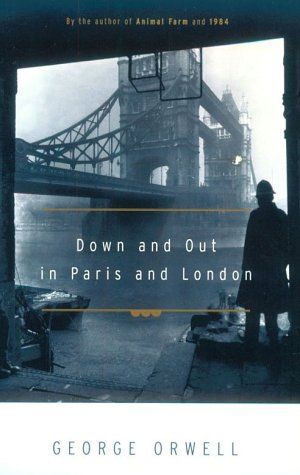
Down and out in Paris and London
George Orwell's vivid memoir of his time living among the desperately poor and destitute, Down and Out in Paris and London is a moving tour of the underworld of society.
'You have talked so often of going to the dogs - and well, here are the dogs, and you have reached them.'
Written when Orwell was a struggling writer in his twenties, it documents his 'first contact with poverty'. Here, he painstakingly documents a world of unrelenting drudgery and squalor - sleeping in bug-infested hostels and doss houses of last resort, working as a dishwasher in Paris's vile 'Hôtel X', surviving on scraps and cigarette butts, living alongside tramps, a star-gazing pavement artist and a starving Russian ex-army captain. Exposing a shocking, previously-hidden world to his readers, Orwell gave a human face to the statistics of poverty for the first time - and in doing so, found his voice as a writer.
Reviews
Cassandra Tang@tangaroo
adinda@doostoevskij
Laura Mauler@blueskygreenstrees
kyra@witchfl00
Andrew John Kinney@numidica
Meriem💫@mer_iem
Eleanor Hill@eleanor30
Umran Y@umr4n6
Helen Bright@lemonista
Ricky Burgess@rrricky
Tom Gregson@gregsonog
N.C@quince
Faith Lim@fefifofumm
Will Vunderink@willvunderink
Maurice FitzGerald@soraxtm
Anita Irsevic@picalla
Vanda@moonfaced
Shape Mismatch@shape_mismatch
Melissa doran@yaryer
David McDonagh@toastisme
Andrew Louis@hyfen
Alli@allim726
Katie @knix
Joshua Line@fictionjunky